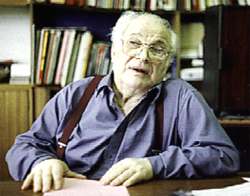 How does it feel to have your own season at the NFT? Its actually our second season, they did one about 25 years ago for our anniversary where they chose the films, This time I’m choosing them so there is a marked difference and if you look at the program I’ve tried to examine the meaningful moments of the last half century. As you know, I’ve lived a long time and its important for me that it covers issues like the Vietnam war, Aldermarston, CND, the coup in Chile and our support for the socialist world. I wanted the season to reflect all of that. Apart from ‘Life Can Be Wonderful’ there’ll be ‘Fifty Fighting Years’ the story of Labour Monthly which I mentioned earlier. Its a chronological blow by blow account using archive material to illustrate the various historical moments that the journal has lived through, of course the journal no longer exists and Rajani Palme Dutte who ran it died many years ago as has his assistant editor Robin Page Arnot. These were remarkable figures in the communist movement: Dutte was considered the theoretician of the party, Page Arnot really helped to found the Marx Memorial Library, he knew Bernard Shaw and I think he even knew Karl Marx’s daughter Eleanor. Descriptions of the films shown in the first week of the season have been provided by John Riley of the BFI. ‘50 Fighting Years’. This film tells of great occasions where the journal was proved right in ‘the teeth’ of popular opinion: Elements of Hitler’s career were predicted up to 10 months before the abortive putsch in November 1923. Some such analyses are subject to opinion; Palme Dutt predicted that British Prime Ministers MacDonald, Chamberlain, Churchill and Atlee all failed because of their non revolutionary stances. The film mercilessly points out where the journal was right and the politicians did indeed fail - according to Palme Dutt’s criteria. One of the most poignant moments is a list of artists blacklisted by the BBC for supporting the People’s Convention of 1941. The list includes the composer Alan Bush (1900-1995), the composer of the music for the film. ‘Lenin In London’. ETV’s catalogue includes a vast range of material including many short documentaries such as this, the English version of ‘Ilyich v Londone’, which could be used to support features or long documentaries.. Lenin arrived in London in 1902 and stayed briefly, editing the revolutionary journal, ‘Iskra’ (The Spark) from what is now the Marx Memorial Library. After some archive footage from the turn of the century, we tour the sites of this sojourn. By the mid 1960’s when the film was made, many had changed but some, such as the Reading room at the British Library and the seat at which Lenin sat were identical. |
<<< • page 1 • page 2 • page 3 • >>>
Help • Return to front page • Contact us • About us • Join Email